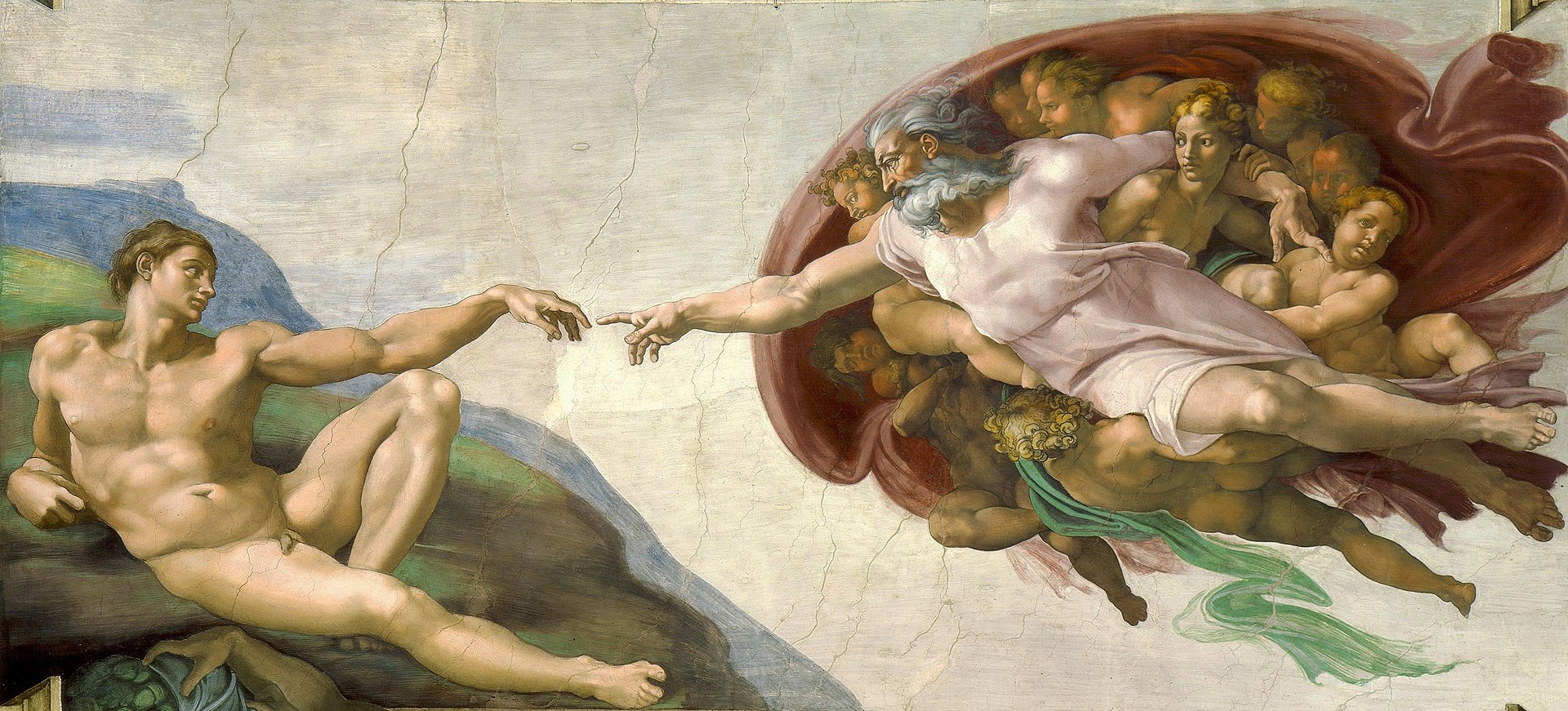The title of this post comes from Genesis, 1:31, the final verse of the first chapter of the Old Testament. This final verse provides commentary on the sixth day of the Creation, in which God had, after the creation of humans, declared that they are masters of creation: “Be fruitful, and multiply, and replenish the earth, and subdue it: and have dominion over the fish of the sea, and over the fowl of the air, and over every living thing that moves upon the earth.”

On this fifth day of Creation, God made humans “in His own image, in the image of God created he him; male and female created he them.” The implication is that other forms of life do not reflect the image of God. This is reinforced by God giving dominion over the Creation to humans. Later, in the Pentateuch, the first five books of the Old Testament, the power of humans to classify animals is given greater depth, and different animals are selected and chosen to be clean and unclean—notwithstanding, of course, that what is clean and appealing or beautiful is in the eye of the beholder.
During the course of the different days of Creation, God examined His work—the creation of heaven and earth, of light, of vegetation, of lights in the firmament, of creatures in the water, in the air, and on land—and “saw every thing that he had made, and behold, it was very good.”
The Creation, therefore, is Good. Genesis, speaking for God the Creator, makes a moral, qualitative declaration and judgment that the Creation is good. Humans, as part of the Creation, are therefore good. The Creation is animate and inanimate, is alive as well as dead, but now, in its existential present, it is good. Goodness is something that occurs through time, just as humans occur, and exercise dominion, throughout time.
The implication in Genesis, Chapter One, is that humans have the moral obligation to treat all things, all of existence, as good, to cherish, to embrace, to love, to preserve.
After all, on the Fifth Day of Creation, God created “every living creature that moves” in the air, in the water, and on land, and “God saw that it was good.” The declaration that the creation before humans are created is good indicates that humans themselves are not the sine qua non of goodness in this creation, but just a part of the overall whole of goodness. God wishes not only humans to “be fruitful, and multiply,” but He commands the birds, fish, and crawling land creatures to do the same. All life is to be fruitful and multiply, not just human life.
It is true, as we humans like to point out, that in Genesis 1:28, God gave “dominion” over other forms of life: this dominion includes to “replenish the earth” as well as “to subdue it.” Humans can hardly replenish that which they subdue if by subdue it means to destroy. Rather, subdue means to cultivate, to encourage, to cause to grow and thrive.
The point behind replenishing and subduing is to provide food: “And God said, Behold, I have given you every herb bearing seed, which is upon the face of all the earth, and every tree, in the which is the fruit of a tree yielding seed; to you it shall be for food.” In addition, “and to every beast of the earth, and to every fowl of the air, and to every thing that creeps upon the earth, wherein there is life, I have given every green herb for food.”
Hence, plant-life is to be cultivated for the sake of providing food for all animals, including humans.
Genesis Chapter One does not inform us that humans can kill at will, kill and destroy whenever the inclination occurs to us, cultivate food to such an extent that we destroy other parts of the goodness of creation—rather, the goodness of creation implies the goodness of life, that life is good, and is not something to destroy, that humans are not, by having dominion, given the right to kill, dismember, torture, pollute, waste, and destroy in all manner in which humans, particularly in the past century, have done.
Does not the world’s philosophy teach us that hubris is the key to self-destruction? Do we not find such teachings reflected in Greek philosophy, Chinese philosophy, and Indian philosophy? Human arrogance, to determine our own destiny, to seek more knowledge than is good for use, consistent with the goodness of Creation, is the moral of the story in Genesis, Chapter Two, where humans arrogantly disobey God, take the fruit from the tree of knowledge, and as a consequence suffer humiliation, pain, and death.
Genesis Chapters One and Two provide us with the essential lesson of how humans should treat each other, other forms of life, and the entire Creation itself.

Pingback: and god saw what he had made - Saw Tool